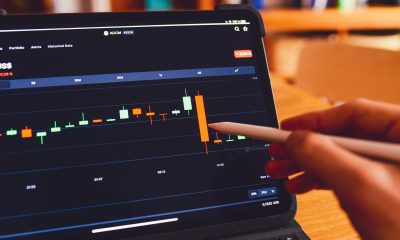Africa
The business environment in Morocco: the EESC calls for more effort
In its annual report, published in the Official Gazette on November 17th, 2020, the Economic, Social and Environmental Council in Morocco, discusses the evolution of the business environment and points out the weaknesses that are hindering its improvement. One of them is the delay in payment, which continues to threaten the viability of businesses, especially the TPMEs.

For the Economic, Social and Environmental Council (EESC), the year 2019 was marked by the implementation of numerous reforms, the aim of which was to continue to improve the business climate and support private initiative.
Among these advances, the EESC cited the reform of the Regional Investment Centers (CRI), the modernization of administrative procedures and formalities, the adoption of the laws on public limited companies and limited liability companies, and the adoption of the law on personal property securities. These achievements have enabled Morocco to significantly improve its ranking in the Doing Business 2020 by positioning itself in 53rd place, a jump of 7 places. This has brought Morocco closer to its goal of being in the Top 50 best economies in terms of business climate by 2021.
Read more about the Moroccon economy and find the latest economic news with the Born2Invest mobile app.
However, despite progress in the business environment, this does not seem to be sufficiently reflected on economic activity and employment
This is evidenced by the low GDP growth rate and the persistently high unemployment rate among young people and graduates. They are also not reflected in the views of national enterprises, particularly SMEs, on the business environment.
The business environment in Morocco continues to present many weaknesses, particularly because of the scourge of corruption, which, according to the EESC, continues to plague the kingdom in spite of the attempts made, such as the National Strategy for the Fight against Corruption. Added to this is the delay in payment delays, which continues to threaten the viability of businesses, especially the TPMEs.
However, the average delay at the level of public institutions and enterprises (EEPs) declined slightly between 2018 and 2019. A decrease that must be put into perspective since it does not take into account the hidden delays, upstream of the filing of the invoice. “Indeed, there are no mechanisms that would protect small suppliers from a possible decision by the public authorizing officer to delay the date of receipt of the invoice in order to postpone the activation of the phase of ascertaining the service done,” notes the EESC.
For their part, delays between private companies remain excessive
The private inter-company credits would represent nearly $46 million (420 million MDH), almost the equivalent of the bank credit granted to private non-financial companies and individual entrepreneurs at the end of 2019.
“In addition to the slowness of the generalization of the digitalization of the invoicing process, the difficulty to reduce payment delays may also be attributable to the asymmetrical commercial relationship between small and large companies which often leads to the abstention of SMEs to denounce delays in front of large customers, for fear of losing their market share,” commented the department of Ahmed Reda Chami.
That is another impediment to improving doing business, and not the least, access to financing, which is always among the first concerns of Moroccan companies, especially SMEs. Despite the efforts made, particularly through the guaranteed loan mechanism of Bank Al-Maghrib or the products offered by the Central Guarantee Fund (CCG), difficulties in accessing financing persist. To remedy this and encourage entrepreneurship, the Intelaka financing program was launched in early 2020. An initiative which, according to the EESC, remains positive but whose success is conditioned by the ability to act on the various factors threatening the viability of the company, outside of financing.
As a result, the additional measures required to make this program a success must include amending regulatory and administrative authorizations and approvals for non-strategic sectors by replacing them with predefined specifications and a posteriori control. This will make it possible to limit the possibilities of abuse of administrative power and, consequently, reduce barriers to entry for project sponsors.
The capacities of the IRCs and other entities involved in the reception of projects would also benefit from being strengthened, so that they can offer new project leaders, upstream, quality technical assistance in the preparation and assembly of files. An additional effort should also be made in terms of export support for Moroccan SMEs, through assistance and advice on export opportunities (particularly in Africa, where the risk remains high).
__
(Featured image by MabelAmber via Pixabay)
DISCLAIMER: This article was written by a third party contributor and does not reflect the opinion of Born2Invest, its management, staff or its associates. Please review our disclaimer for more information.
This article may include forward-looking statements. These forward-looking statements generally are identified by the words “believe,” “project,” “estimate,” “become,” “plan,” “will,” and similar expressions. These forward-looking statements involve known and unknown risks as well as uncertainties, including those discussed in the following cautionary statements and elsewhere in this article and on this site. Although the Company may believe that its expectations are based on reasonable assumptions, the actual results that the Company may achieve may differ materially from any forward-looking statements, which reflect the opinions of the management of the Company only as of the date hereof. Additionally, please make sure to read these important disclosures.
First published in LesEco.ma, a third-party contributor translated and adapted the article from the original. In case of discrepancy, the original will prevail.
Although we made reasonable efforts to provide accurate translations, some parts may be incorrect. Born2Invest assumes no responsibility for errors, omissions or ambiguities in the translations provided on this website. Any person or entity relying on translated content does so at their own risk. Born2Invest is not responsible for losses caused by such reliance on the accuracy or reliability of translated information. If you wish to report an error or inaccuracy in the translation, we encourage you to contact us.

-

 Biotech2 weeks ago
Biotech2 weeks agoTwogee Biotech Advances Industrial Enzyme Solutions for Circular Production
-

 Crypto2 days ago
Crypto2 days agoUniswap and BlackRock Partner to Launch BUIDL in DeFi
-

 Cannabis1 week ago
Cannabis1 week agoScientifically Verified F1 Hybrids Set New Benchmark for Indoor Cannabis Yield and Consistency
-

 Fintech5 days ago
Fintech5 days agoImpacta VC Backs Quipu to Expand AI-Driven Credit Access in Latin America
























